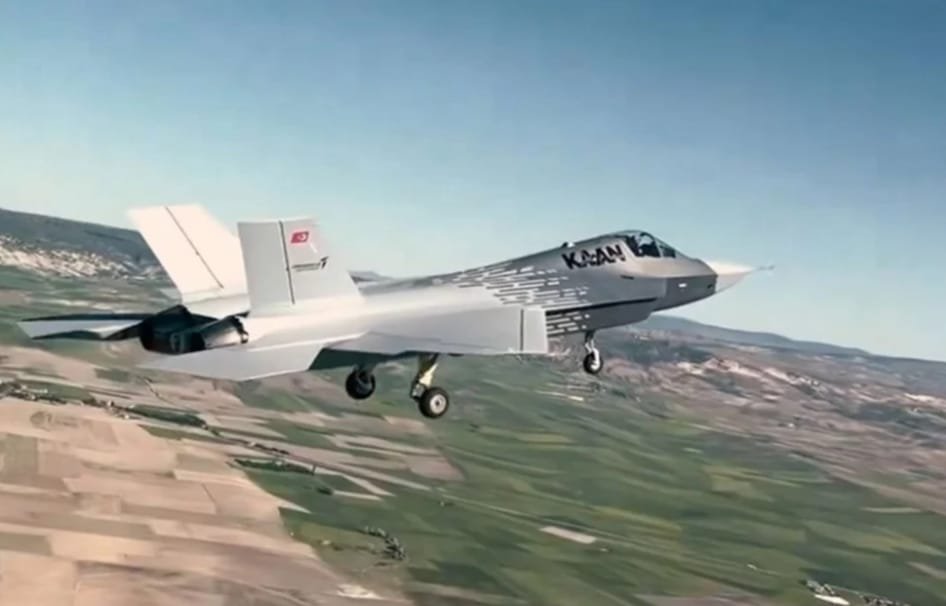
Turkish Aerospace Industries’ KAAN Fifth-Gen Fighter Jet Completes Successful Second Test Flight
On May 7, 2024, Turkish Aerospace Industries (TAI) successfully conducted the second test flight for the prototype of its fifth-generation fighter jet, KAAN. The aircraft took off at 08:46 in the morning and completed a 14-minute flight at a speed of 230 knots, reaching an altitude of 10,000 feet, marking a significant step towards the long road to production and operational service of this prototype.
As a reminder, the maiden flight of KAAN took place on February 21, 2024. Orchestrated by Turkish Aerospace Industries (TAI), this event was hailed as a major technological advancement for Türkiye, aimed at strengthening its defense capabilities and enhancing its strategic influence on the international stage.
Designed as an ambitious project by TAI, KAAN is a fifth-generation stealth fighter jet. Officially started in 2016 with funding of $1.18 billion to acquire the necessary technologies, the development of KAAN benefits from collaboration with international companies such as BAE Systems from the United Kingdom and Rolls-Royce for engine design and development. The choice of the EJ200 engine, which enables supercruise, reflects the ambition to equip KAAN with advanced operational capabilities, notably the ability to fly at supersonic speeds without afterburners.
With a wingspan of 14 meters, a length of 21 meters, and a height of 6 meters, KAAN is designed to achieve a maximum speed of Mach 1.8 and a service ceiling of 55,000 feet. The aircraft is also designed to be interoperable with other critical assets of the Turkish Air Force, including the F-35A, thus enhancing its operational efficiency in joint missions.
The KAAN program aims not only to modernize the Turkish aerial fleet but also to strengthen the national defense industry by developing indigenous engineering and production capabilities. The project ensures that Turkey holds the intellectual property rights to key technologies, especially for the engine, which is crucial for the country’s strategic autonomy. The involvement of international partners and a focus on local production reflect this ambition.
The goal for Türkiye is to replace the F-16 C or D models of its air force and to provide a 5th-generation platform capable of operating with a multitude of drones and internally carrying missiles to reduce the radar cross-section.
According to Lieutenant General İsmail Hakkı Pekin, former chief of Military Intelligence, the serial production of KAAN will extend over ten years. Once fully operational, the aircraft is expected to significantly enhance Turkey’s regional air power, with KAAN playing a pivotal role in its air fleet.


